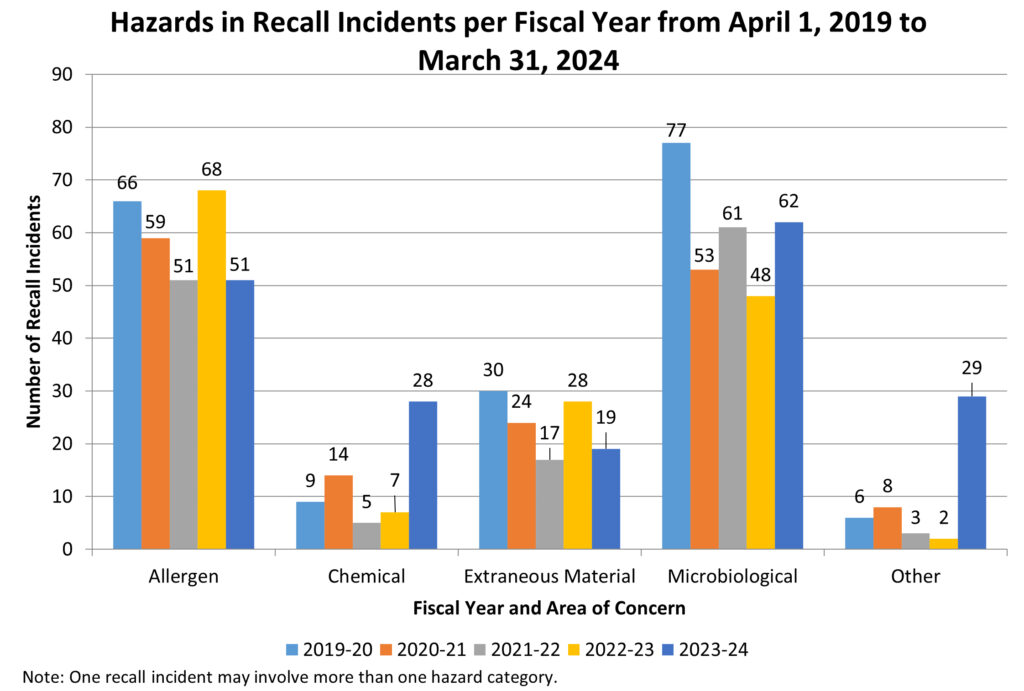
Introduction
Food recalls in Canada are a crucial part of public health and safety, aiming to protect consumers from unsafe or contaminated products. These incidents, which can range from minor quality issues to serious health hazards, underscore the importance of food safety regulations and monitoring systems in the country. Ensuring that consumers are aware of food recalls helps mitigate health risks associated with tainted or improperly labelled items.
Recent Food Recalls
In the last few months, several significant food recalls have been issued across Canada. One such recall was due to potential salmonella contamination in a popular brand of chicken products, which led to public health officials advising consumers to check their freezers. Additionally, a recall was issued for a specific variety of peanuts due to undeclared allergens, highlighting the dangers posed to individuals with nut allergies.
Health Canada plays a vital role in these recalls by monitoring food safety and working with suppliers to initiate recall notices. The agency routinely updates the public through its website and social media channels, ensuring that consumers remain informed about the latest developments. In August 2023 alone, over ten food products were recalled, affecting dozens of brands and various food categories.
Impacts of Food Recalls
The impacts of food recalls are extensive, affecting not just consumer health but also the economy. When recalls occur, retailers often see a decline in sales, and manufacturers may face reputational damage that lasts long after the incident. Moreover, the cost of disposing of recalled food products and potential lawsuits can strain businesses, leading to economic repercussions.
Staying Informed
Consumers are encouraged to stay informed about food recalls by regularly checking Health Canada’s recall list, which is updated frequently. There are also various mobile applications that send alerts directly to users regarding recent recalls. By remaining vigilant, consumers can reduce their risk of foodborne illnesses and allergic reactions.
Conclusion
Food recalls are a critical component of protecting public health in Canada. With the increasing complexity of food distribution networks, consumers must stay educated and informed about potential risks. As regulatory frameworks evolve and enhance tracking abilities, the hope is that timely notifications will minimize health risks. By being proactive, Canadians can make informed choices about their diets and help safeguard their families’ health.



